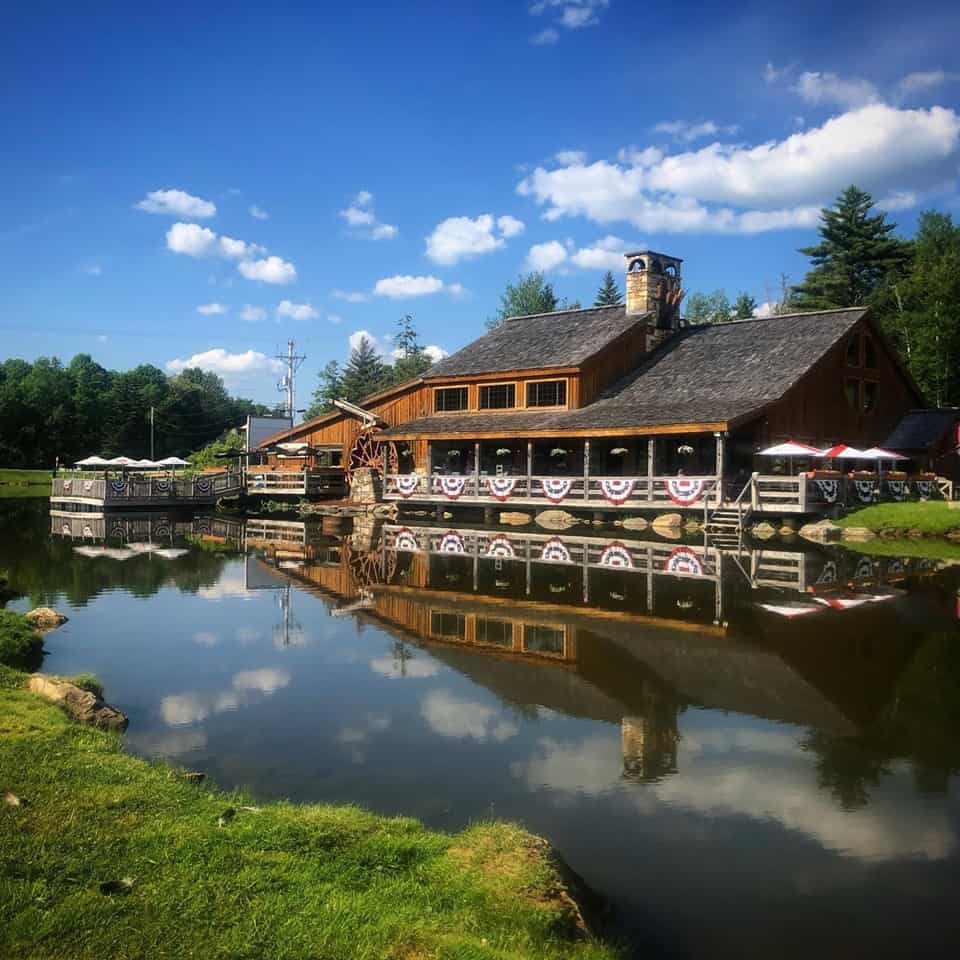Board issues six month temporary structure permits, without fees
By Curt Peterson
Killington selectmen has agreed on terms for “temporary structures” to accommodate pandemic-mandated social distancing in restaurants this winter.
In a town that thrives on hospitality, the pandemic shut-down in March was crushing — and it continues to be a struggle, though summertime outdoor recreation and dining (as a result of “outdoor serving” permits) proved stronger in Killington than many had hoped.
Town Clerk Lucrecia Wonsor said eight local eateries expanded their outdoor dining areas this summer, including: Back Country Café, Casey’s Caboose, Foundry, JAX, The Garlic, Sushi Yoshi, Taco X and Lookout Tavern.
Now Killington restaurants face two additional challenges – impending cold weather (making al fresco dining less attractive) and a recent fall upsurge in Covid-19 cases.
Currently, state mandate restricts indoor dining capacity to 50% of the business’s approved official fire safety capacity, subject to distancing — with a maximum of 75 persons per space. A plexiglass shield must separate bar customers from the bartender, and servers must wear masks at all times. The outdoor limit is 150 persons.
Chris Karr, who owns three restaurants (Foundry, JAX and Charity) attended the Oct. 20 virtual Select Board meeting. He had applied for a zoning variance to enclose JAX’s outdoor seating area using an awning. If patrons resist indoor dining, or a Covid surge leads to stricter indoor capacity limits, he would still have his safe “outdoor dining” area for customers.
Selectman Jim Haff, aided by State Representative Jim Harrison, made arrangements for Deputy Secretary of the Agency of Commerce Ted Brady, Executive Director of the Chamber of Commerce and Economic Development of the Rutland Region Lyle Jepson, and CCEDRR Director of Operations Tyler Richardson to participate in the meeting this past Tuesday, Oct. 20.
Brady said the state has no problem with towns allowing temporary structures to increase dining capacity, and approving them for “outdoor consumption.”
Haff has spoken to restaurateurs in town, and reports they realize any temporary structures are subject to Division of Fire Safety (DFS) approval – the DFS will designate an official fire safety capacity for each structure, he said.
Lyle Jepson added there are special considerations for larger tents.
“If they are heated, are they still considered outdoors?” He asked, “And is there adequate ingress and egress?”
Tyler Richardson said a grant program is available to reimburse business owners for design costs of Covid-related projects such as social distancing layouts or temporary structures, but warned the program will expire in two weeks.
Killington Town Manager Chet Hagenbarth questioned the permitting process: Are these structure permits a “zoning change?” Who issues the temporary structure permits? Do the applicants go to the Development Review Board? What is meant by “temporary?” Is there a built-in permit time limit, or does the permit end concurrent with Vermont’s “state of emergency?”
Zoning Administrator and Town Planner Preston Bristow said the town’s “tent permit” regulation does not include a time limit of any kind, or any parking regulations.
Meanwhile, Chris Karr and Howard Smith, owner of Sushi Yoshi, each had paid a $300 application fee to the DRB for zoning changes to accommodate planned temporary structures.
Haff said if done by a zoning variance, their permits would become permanent and that’s something to avoid. He suggested their fees be returned and said “the DRB shouldn’t be involved.”
“We [the Select Board] want to see any plans for temporary structures,” Haff said. “They have to cover the same space as the summer outdoor consumption permit, and the permits will be subject to Division of Fire Safety approval.”
Haff’s motion authorizing the zoning administrator to issue temporary structure permits, with no fee or additional parking requirements, for six month terms, passed unanimously.




